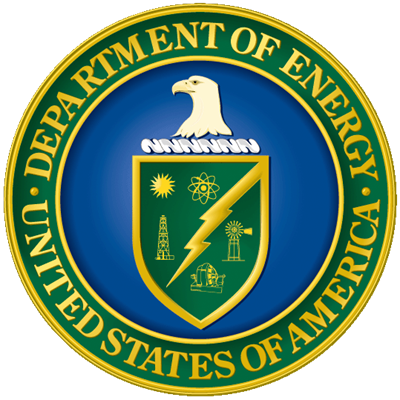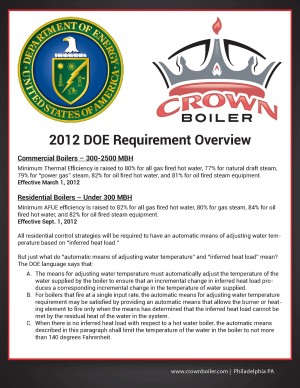On September 1, 2012, new regulations from the Department of Energy will go into effect. These regulations were established in the Energy Independence and Security Act (EISA – full text, summary) in 2007, and raise the minimum federal efficiency standards on all residential (under 300 MBH) boilers. The new AFUE minimum has been raised to 82% for gas-fired hot water models, 80% for gas-fired steam models, 84% on oil-fired hot water models, and 82% for oil-fired steam models. Additionally, no boilers manufactured after September 1, 2012 are no longer allowed to use a standing pilot.
Along with the increased AFUE minimums and elimination of standing pilot, under the new regulations all residential control strategies will be required to have an automatic means of adjusting water temperature based on “inferred heat load.” This change has a few applications, depending on the boiler. The means for adjusting water temperature must automatically adjust the temperature of the water supplied by the boiler to ensure that an incremental change in inferred heat load produces a corresponding incremental change in the temperature of the water supplied. For boilers that fire at a single input rate, the automatic means for adjusting water temperature requirement may be satisfied by providing an automatic means that allows the burner or heating element to fire only when the means has determined that the inferred heat load cannot be met by the residual heat of the water in the system. When there is no inferred heat load with respect to a hot water boiler, the automatic means must limit the temperature of the water in the boiler to not more than 140°F.
Crown Boiler has created a convenient one-sheet that breaks down the new regulations. That file can be downloaded by clicking this link or the image of the document below. For more information on any of Crown Boiler’s products, please visit www.CrownBoiler.com.



